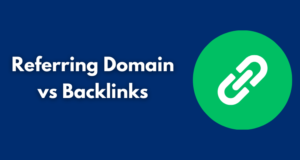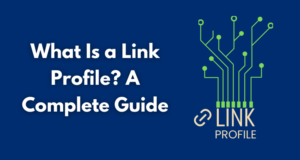Law firms crushing it in 2025 aren’t just getting lucky or outspending everyone else on ads. They’ve cracked the code on lead generation strategies that consistently bring in high-value clients while their competitors are still wondering why their phones aren’t ringing.
These successful firms guard their methods like state secrets because they know that once smaller practices figure out what they’re doing, the playing field gets a lot more competitive.
Here’s the thing though: most of these tactics aren’t some impossible magic that requires a million-dollar marketing budget. They’re strategic, systematic approaches that any practice can implement if they know what actually moves the needle.
The top firms are combining surgical SEO targeting with AI-powered client experience systems, creating this perfect storm of marketing precision that generates a steady flow of qualified leads.
We’re about to pull back the curtain on the lead generation secrets that big-name firms would rather keep locked away in their conference rooms. Once you see how they’re really winning cases online, you’ll understand why your practice doesn’t have to settle for whatever scraps they leave behind.
Table of Contents
ToggleHyper-Targeted Local SEO

While most firms are still fighting over generic terms like “lawyer near me,” the smart players have moved way beyond that basic approach. They’re building dedicated landing pages for every single neighborhood, suburb, and district in their service area, creating this massive web of location-specific content that dominates local searches.
These firms treat their Google Business Profile like a full-time marketing channel, posting weekly updates, answering every single question in the Q&A section, and actively managing their review flow. But here’s where it gets interesting: they’re also investing heavily in reputation management services that know how to bury negative reviews under an avalanche of positive feedback.
The secret sauce is in the details. Instead of one generic “personal injury lawyer” page, they’re creating separate pages for “car accident lawyer in [specific neighborhood]” and “slip and fall attorney near [local landmark].” Google rewards this kind of hyper-local relevance, and clients feel like they’re finding someone who actually understands their specific area.
They’re also gaming the system by creating location-based content that mentions local hospitals, courthouses, and even popular restaurants. It sounds silly, but Google’s algorithm eats this stuff up because it screams local authority and relevance.
Paid Ads with Laser Precision

Big firms run Google Ads, but they’re not just throwing money at broad keywords and hoping something sticks. They’ve figured out that bidding on hyper-specific long-tail keywords costs way less and converts at much higher rates than fighting over the obvious terms everyone else wants.
Instead of wasting budget on “personal injury lawyer,” they’re targeting phrases like “truck accident lawyer free consultation Pittsburgh” or “wrongful death attorney no upfront fees Cleveland.” These longer, more specific searches indicate people who are actually ready to hire someone, not just browsing around.
The really smart firms are running retargeting campaigns that follow website visitors around the internet until they either call or completely forget about their legal problem. They know that most people need to see a law firm’s name multiple times before they feel comfortable enough to make contact.
They’re also constantly A/B testing their ad copy to find the exact words and phrases that make their phone ring. While other firms set up their ads once and forget about them, these firms are tweaking headlines, descriptions, and calls-to-action every week based on actual performance data.
Content That Feels Personal

The firms winning online aren’t just cranking out generic blog posts about “What to do after a car accident.” They’re creating content that answers the hyper-specific questions their ideal clients are actually asking at 2 AM while they’re lying awake worrying about their case.
They’re using video FAQs and TikTok-style short clips to put a human face on their practice, because people want to see who they’re potentially hiring before they pick up the phone. These videos don’t look polished or expensive, they look real and approachable, which builds way more trust than fancy production values.
The content cluster strategy is where they really pull ahead of the competition. They create comprehensive main practice area pages supported by dozens of related blog posts, case studies, and FAQ pages. This creates this massive content ecosystem that dominates search results for everything related to their practice areas.
But here’s the part most firms miss: they’re writing specifically for their ideal client persona, not for other lawyers. If they want to attract blue-collar workers injured on construction sites, they write in a completely different tone than if they’re targeting executives dealing with employment issues.
Your Turn to Level the Playing Field
The firms absolutely crushing lead generation in 2025 aren’t relying on any single magic bullet or secret technique. They’re running integrated campaigns that combine surgical local SEO, precision-targeted advertising, genuinely helpful content, lightning-fast intake systems, and strategic authority building to lock down the best clients before their competitors even realize what’s happening.
The beautiful part is that none of these strategies require some impossible level of technical expertise or unlimited marketing budget. They just demand a focused, systematic approach instead of the scattered, half-hearted marketing efforts that most firms are still using.
If you start implementing even two or three of these strategies consistently, you’ll immediately stand out from the firms still relying on referrals and outdated Yellow Pages thinking. In today’s crowded legal market, knowing how to generate high-quality leads isn’t just nice to have anymore, it’s literally survival.
Now that you’ve seen behind the curtain and understand what the top firms are really doing, you’ve got the same playbook they’ve been using to dominate their markets. The question is whether you’re going to act on it or let your competitors keep eating your lunch.










